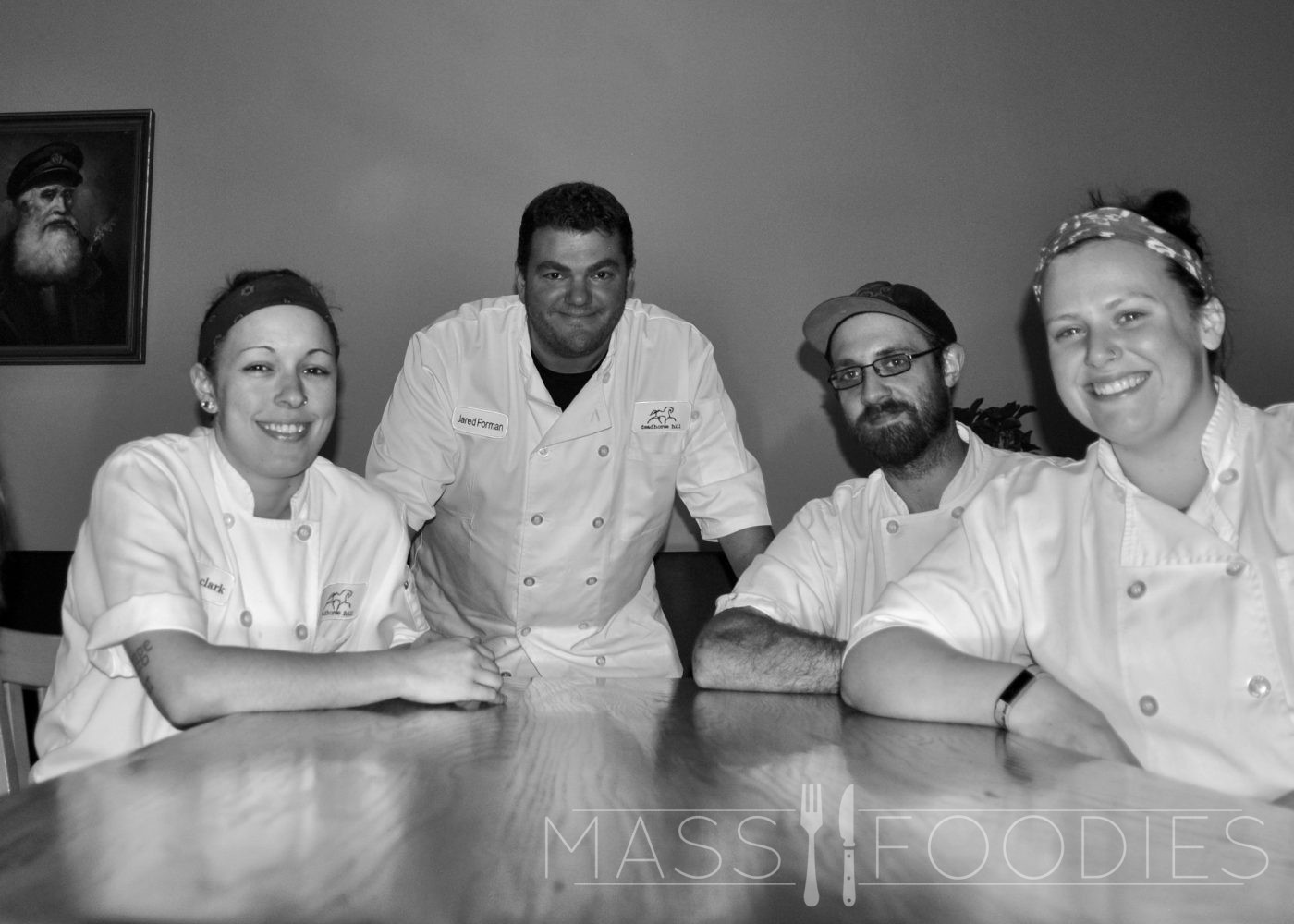
Another familiar face just joined deadhorse hill’s impressive culinary team and Executive Chef Jared Forman feels certain that his job is about to get more difficult. “Taking people on never makes our lives easier, it advances our agenda for better food and a better menu,” Forman explains.
The team, including latest addition Erin Hockey, has gathered around a long table in the back of the restaurant for a ritual pre-service meeting. They sit beneath the watchful eyes of an old sea captain who hangs over Forman’s right shoulder. A collective gaze falls on Hockey, the expectation being that with a new meat manager on board, deadhorse’s already ambitious repertoire will continue to grow.
Hockey grew up hunting and fishing in her hometown of Quincy. “My uncle owned a big game and taxidermy shop, so I broke down my first deer pretty early in life,” she recalls. After accepting a full ride to the New England Culinary Institute, she went on to intern at The Butcher Shop, working for the famed restaurateur, Barbara Lynch. Hockey’s arrival in Worcester coincided with the opening of Kummerspeck on Water Street, an endeavor to which she played an integral role.
For deadhorse hill, welcoming Hockey means the start of a true charcuterie program and another step toward achieving full potential as a seasonal American restaurant. For Hockey, the move opens up a host of spotlight opportunities as an accomplished female butcher. Her debut with the deadhorse hill team took place at America’s Test Kitchen in Boston at the end of October, a star-studded affair.
“I’m not actually good at anything,” Forman jokes from his seat at the head of the table.
“At least you’re funny,” his chef de cuisine Robin Clark fires back before adding, “Jared can see the talent behind him. He empowers us all to let our passions and skillsets shine.”
Chef Clark is living proof. Described by owners as “the heartbeat” of the kitchen, she offers the organized mind of a pastry chef along with a savory intuition. Early experience at Mill’s Tavern, a Providence institution, taught Clark to play with fire, make pasta by hand, and prepare classic dishes at volume. From there, she gained fine dining experience at T.W.Food in Cambridge where she mastered the intricacies of a meticulous modern French bistro. At deadhorse, Clark is free to marry both of those experiences, bringing her aptitude for the elaborate to an exceedingly busy kitchen. She favors recipes that involve a lot of patshke like the tiny tortellinis she has been fussing with all morning, as only a perfectionist could.
Conversely, Clark’s daytime counterpart, a.m. sous chef Nathan Sanden, is an idea-man. Sanden proved his dedication when he drove to Worcester in the throes of an April snowstorm for his interview at deadhorse hill. He feels he has landed a sort of dream job in that he spends his days exploring the distinct techniques of other cultures. Sanden is a dedicated study of Forman, who has outright lied in his assertion that he is “not actually good at anything.” Forman has gleaned his own wisdom from the greats at Per Se, momofuku noodle bar, Marea, and Gramercy Tavern before playing an evident role in the success of Strip T’s and Ribelle.
At the end of the meeting, Hockey, Clark, and Sanden dart off to the kitchen while Forman moves the long table back into a corner. He tucks the chairs neatly into place in preparation for dinner service and eyes the captain over his shoulder. “Some chefs think that you’re only as good as your last dish, but the truth is, you’re only as good as the people you have working behind you.”
